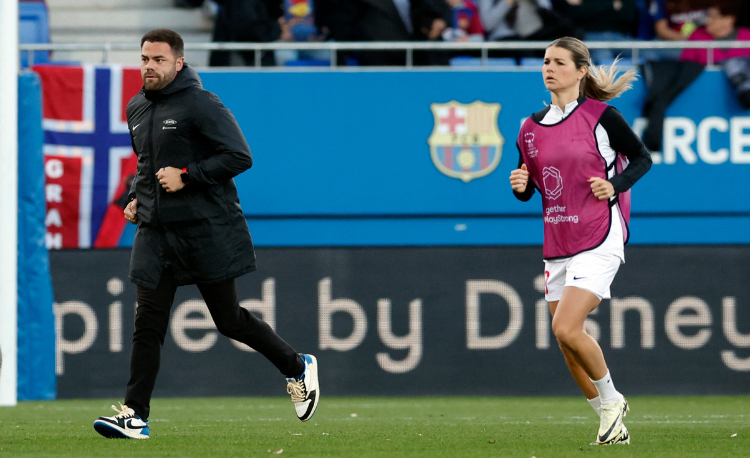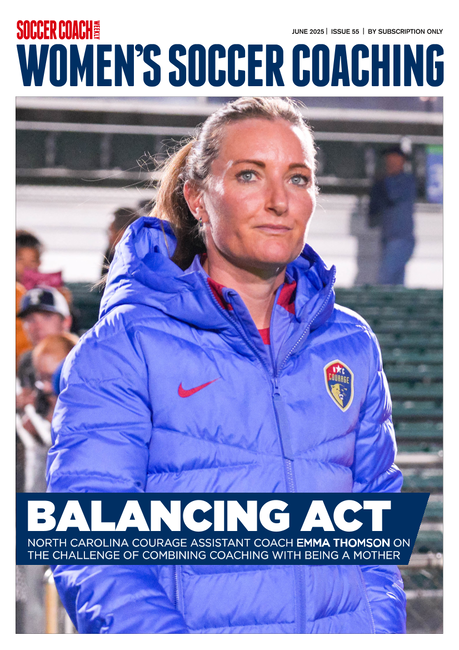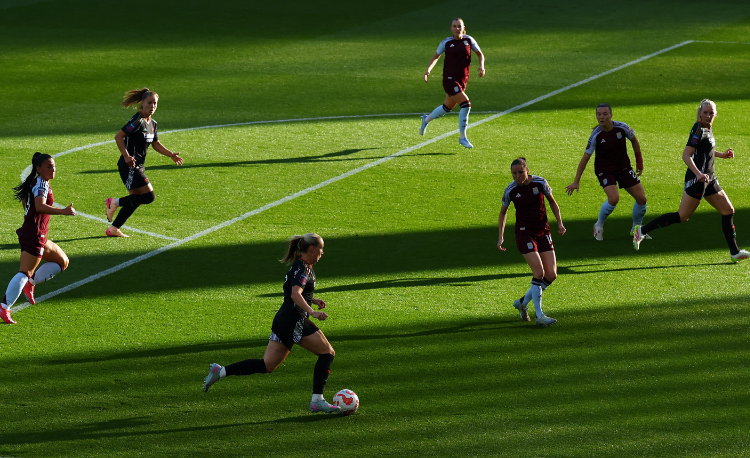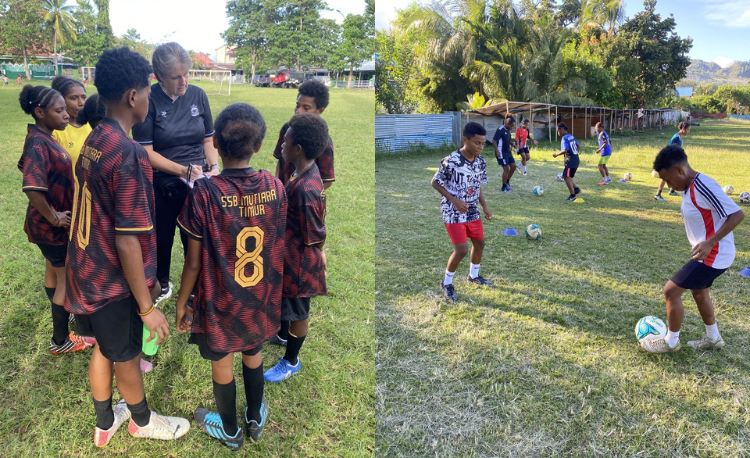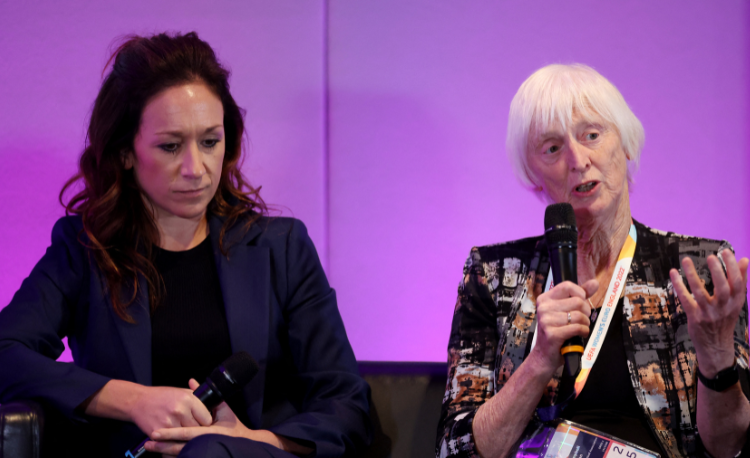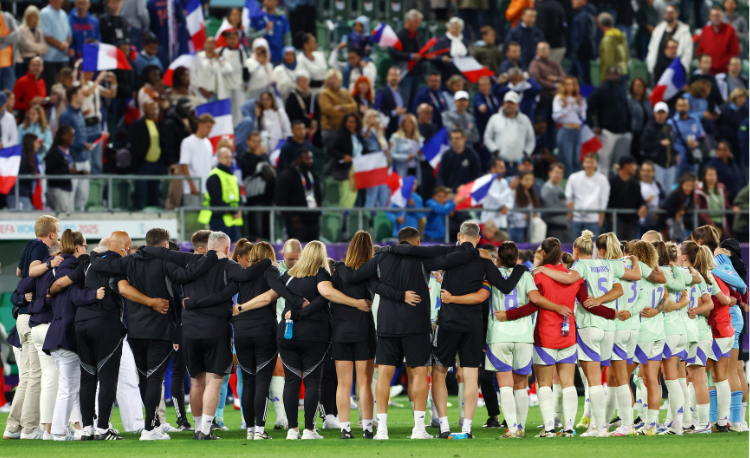You are viewing
1 of your 3 free articles
Navigating the women's game as a male manager
Christopher Smith details his experience of first coaching a women’s team, initially inspired by his daughter’s love of the game
“Not worth watching…”, “How will you deal with ladies?”, “Yeah but where do you want to coach eventually”.
These are just some of the comments that were made when I told people I had applied for the coaching role at Abingdon United WFC.
When I went to see Abingdon United WFC play a few years back I was astounded, and it really pushed me to want to be involved in the game.
Rewind a few years, my daughter asked me if she could start football. She wasn’t sport-orientated in any way, shape or form, so I was dubious but supportive (massively important throughout this journey). She found a young girls’ team. My daughter found it very hard to socialise with new people and was stuck in a rut, so for her to show interest, it was a must that we gave her as much support as possible. She loved it and grew in confidence immediately. This opened my eyes into what the game of football can do and what young females (and older) were missing.
Why was it that boys/men were “graced” with such support in the game, when it was giving so much more than “football”?
Through playing regularly, including in a boys’ team, my daughter Livie completely changed in life. Her confidence, her figure, her lifestyle, her outlook on life, her friends, her education and her health.
I decided that I wanted to help, not only her, but the team. I wanted to give them a platform to express themselves, where they could meet new people, have structure, have discipline and guidance, friends and a social connection with people they might grow up with… and of course help them learn the game of football. I took over the team and immediately saw the challenges of coaching but more importantly, the challenges within the female game.
Back to my first day at Abingdon United WFC, I was asked: “Can you put on a session for the ladies?” I am very fortunate, a couple of my strengths in coaching and in life are my ability to read situations and adapt, the ability to resonate with almost everyone and my ability to stand up for what I believe in.
Communication and relationships between players and coaches (people in general) is everything in my eyes. These ladies will see “another” male come into to their camp and deliver sessions.
I just asked myself “How would they feel?”.
We are fortunate to have the Emma Hayes, Hope Powells and Sarina Wiegmans of the game, but it is still male-dominated for now.
So, I challenged myself to make it as comfortable as possible for the ladies and to try to show my “openness”, my “approachability”, my “belief in their ability” in my session, as it was imperative for them to judge me and not me to judge them.
When there has been an awkward conversation or a tricky topic, I have always tried to show understanding, reasoning and knowledge on that subject, and it sounds obvious. It isn’t.
The conversations I have had compared to that in an “alpha male” team are MILES apart. I feel the ladies are usually asking for help or guidance, whereas men are more confrontational, more independent and that “difference” was hard to grasp at times.
All I would say is, don’t act like you know better, don’t pretend to be an expert, don’t lie (big one) and think of it as a normal question. They aren’t pressing you because you are male, they are pressing you because they want answers.
I can’t give you an insight into how hard it is to be a female coach because the majority of the world still see football as a “men’s” game. I also won’t sit here and write at how hard it is or must be, but I do know that, like most adversities, it will come to a point where it won’t be spoken about because it will be the norm.
I am still involved in coaching and will always prefer the female side of the game. I think it’s more appreciated, there is more interaction, more expression and much more to discover.
I love what the game has given me as a person. I’m now a UEFA B student, I have a newfound admiration for players, for coaches, for women in general (although I have learnt some stuff, I wish I hadn’t!) but I have found qualities that I never knew I had or needed. Level of detail, the level of the players, the demanding side of the female game and coaches in general.
Nine months later, a player stepped off the coach from the club’s historic County Cup final and gave me a high five. “What you’ve done throughout the season has been amazing so thank you very much”.
She didn’t have to do that, they had enhanced my love for the game to astronomic heights I didn’t realise I had.
The relationship and the camaraderie they had created had helped me with my life, with my connection to my younger team, with my love for the game and more than they realised, the connection with my daughter.
I will share with you one small piece of feedback I received from a former player which allowed me to believe all the above was okay.
’From the very first session you just "got us" and made such an effort with all of us as individuals and built those relationships so quickly so that we all had so much trust and respect for you. You were so approachable, and I honestly felt like I could come to you with anything, and you’d just speak to me, and us, on a level about it.’
Understand your strengths and understand you are but a small cog in a rapidly growing game. The quicker and stronger you can build those relationships and connections the better. A better person has a better life - and a better life can only make a better player.
Newsletter Sign Up
Newsletter Sign Up
Discover the simple way to become a more effective, more successful soccer coach
In a recent survey 89% of subscribers said Women's Soccer Coaching makes them more confident, 91% said Women's Soccer Coaching makes them a more effective coach and 93% said Women's Soccer Coaching makes them more inspired.
*includes 3 coaching manuals
Get Inspired
All the latest techniques and approaches
Women's Soccer Coaching offers proven and easy to use soccer drills, coaching sessions, practice plans, small-sided games, warm-ups, training tips and advice.
We've been at the cutting edge of soccer coaching since we launched Soccer Coach Weekly in 2007, creating resources for the grassroots youth coach, following best practice from around the world and insights from the professional game.
